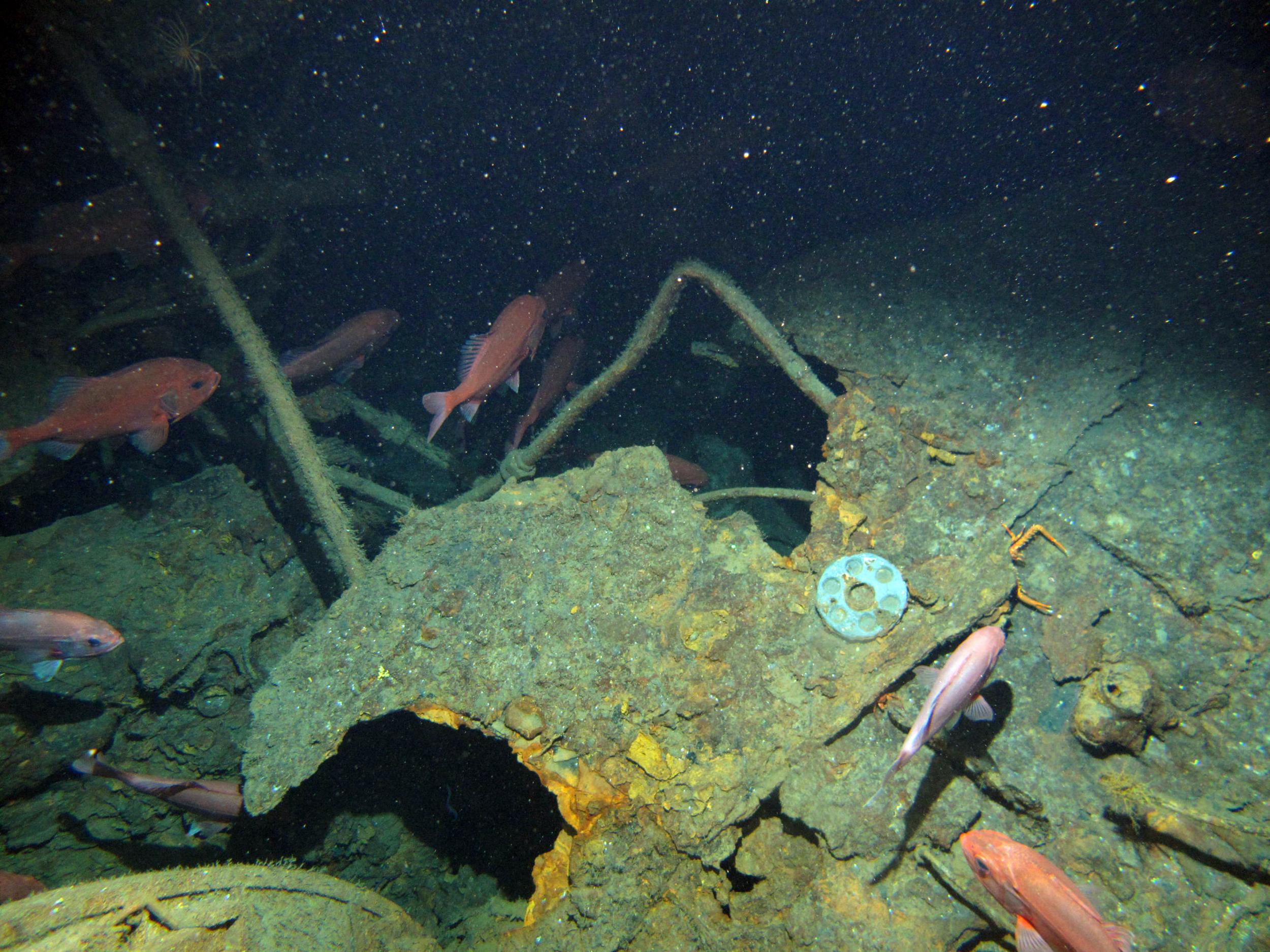Australian First World War submarine discovered 103 years after it mysteriously vanished
Fate of 800-tonne vessel navy's longest-running unsolved tragedy

The wreck of an allied First World War submarine has been discovered 103 years after it sank off the coast of Papua New Guinea.
The fate of the 800-tonne vessel was Australia’s longest-running naval mystery after it vanished on 14 September 1914 without a distress call.
But following 13 separate retrieval attempts over the past century, an expedition was launched this week which found the submarine 300 metres (984ft) below the sea off the coast of the Duke of York Island group.
The HMAS AE1, which had 35 crew members aboard from Australia, New Zealand and Britain when it disappeared, was the first ever launched by the Royal Australian Navy (RAN) and its first wartime loss.
It had been sent from Sydney to help capture what was then German New Guinea, but disappeared a day after Germany surrendered the colony.
The images captured by the expedition show the submarine apparently in one piece. The Navy described the wreck as “remarkably well preserved”.

Marise Payne, Australian defence minister, said that while the reasons for the submarine's sinking remain unclear, the Australian government was now trying to contact descendants of those killed on board.
"It was the first loss for the RAN and the first Allied submarine loss in the First World War — a significant tragedy felt by our nation and our allies," she said in a statement.
Ms Payne said a commemorative service was held to remember those who died after the vessel was found. Australia will now discuss with the Papua New Guinean government the building of a lasting memorial and ways to preserve the site.
The AE1 made final contact with an Australian ship at 2.30pm the day it disappeared. Mystified villagers on a nearby island at the time spoke of seeing a "monster" or "devil fish" that appeared and quickly disappeared into the water.
It had always been assumed the AE1 was not a victim of enemy action, since the only German vessel nearby at the time was a small survey ship.
Because no wreckage, oil or bodies were found, it was also believed the AE1 sank intact, most likely after striking a reef that punched a hole in the pressure hull. Whether or not this is what happened is still to be publicly verified.
Additional reporting by AP
Join our commenting forum
Join thought-provoking conversations, follow other Independent readers and see their replies
Comments